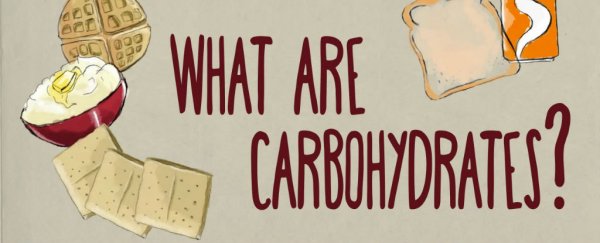
The demonisation of carbs has been going on for decades, but the phenomenon can most recently be tied to the surge in popularity of the dreaded Atkins diet during the early 2000s, which saw "You eat carbs!" become the insult of choice for superficial teenagers everywhere. But with demonisation comes misunderstanding, and what many now consider carbs to be - bread, cake, and rice - is actually dead wrong. So what are carbohydrates, and what are they doing to your body?
In the episode of TED-Ed above, your first life lesson is you can avoid all the white bread you want, but if you're drinking soda or eating salads, I'm sorry to tell you, but you've been in Carb Town this whole time. In fact, an entire loaf of bread, a bowl of rice, and a can of soda all have around the same amount of carbohydrates, and essential fruits and vegetables such as tomatoes, avocados, and carrots are all rich in them. So does that mean you have to cut a whole lot more out of your diet than you thought in order to maintain a healthy weight?
First off, let's clarify what we mean when we talk about carbs. Carbohydrate is the nutritional category for sugars and the molecules your body breaks down to make sugars, and they can either be simple or complex, depending on their structure. As the video explains, if we're talking about simple sugars - or monosaccharides - we mean glucose (found in all carbohydrate-containing foods), fructose (fruit sugar), and galactose (milk sugar), and two of these can be combined to make more complex disaccharides, such as lactose, maltose, and sucrose.
Complex carbohydrates, on the other hand, have three to 10 linked sugars, and these can be broken down by our small intestines to use as an energy source.
So why doesn't eating a doughnut have the same effect as eating broccoli? Both are rich in complex carbohydrates, which means they both give us a good burst of energy, so why can't I just empty my fridge out right now and live off a crate of pastries for the rest of my days? While starch (found in doughnuts) and fibre (found in broccoli) are both high in complex carbohydrates, the way the simple sugars have been linked affects how your body processes them.
Basically, the links in starch are easily broken by your body to get to all that sweet, sweet energy, which is the biological basis for that sugar high you so desperately crave at around 3pm. Foods that are high in fibre, such as apples, whole grains, and vegetables, are much harder to break down, and impart a more even 'slow burn' of energy. The rate at which your body breaks down complex carbohydrates into simple sugars such as glucose to raise your blood-sugar levels is known as the Glycemic Index (GI) and according to TED-Ed, meat, cheese, and eggs have the lowest GI.
Even foods that start off as high GI can be made healthier simply by how you process them, as this 2015 study on rice found. Turns out, just by cooking rice in a certain way, you can cut its calories by 50 percent, thanks to how those sugar bonds are affected when you heat them up and cool them down.
So can carbs make you fat? Absolutely, and they can lead to high blood pressure, cardiovascular disease, and type 2 diabetes. I'll let the video above explain how to avoid that, but let's just say it involves what you decide to do with that pasta-sushi-burrito-doughnut-burger that definitely exists in the Worst Restaurant Ever for a limited time only.
